No matter what project you’re undertaking, ensuring that you’re getting the right type of concrete is essential. Whether it’s large scale construction or a domestic build, the concrete mix that you choose will have a huge impact on the success of the project, so learning about the various types really pays dividends.
While all concrete mixes have some common ingredients – namely: cement, water and a mixture of sand and stone – a number of different materials can be utilised to give the resulting concrete different properties. Want to find out more about this? Read through our guide to familiarise yourself with the different types of concrete.
At EasyMix Concrete, we offer a wide range different concrete mixes, suitable for a number of different applications. If you have any questions regarding what sort of mix you need, don’t hesitate to get in touch for some friendly advice.
Commercial Concrete Types: Strengths, Applications & Designations
Concrete is a popular material that has the versatility to be used for a wide range of purposes. Whether it’s constructing commercial buildings, or laying a simple pathway, the fact is that concrete is the trustworthy material behind many endeavours.
But, what are the different types of commercial concrete on offer? In this article, we’ll be exploring the available types, along with their strengths and applications, to help you decide which sort is ideal for your upcoming project.
C6/8 (GEN 0 / 18_1) Concrete
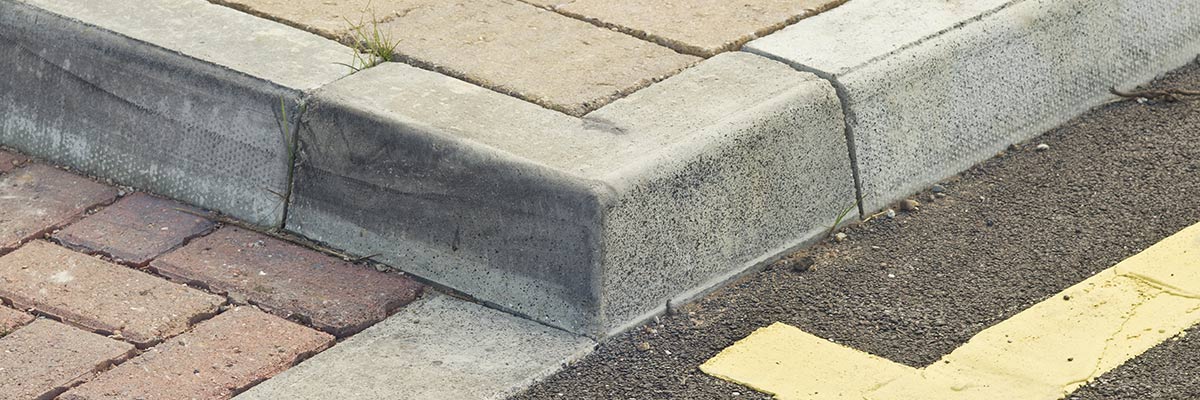
Mainly used in general housing applications.
What is it used for?
- Domestic foundations
- Edgings, kerb bedding, haunching, backing
Strength
28 day strength / 7N
C10 (GEN1 / 16_1) Concrete
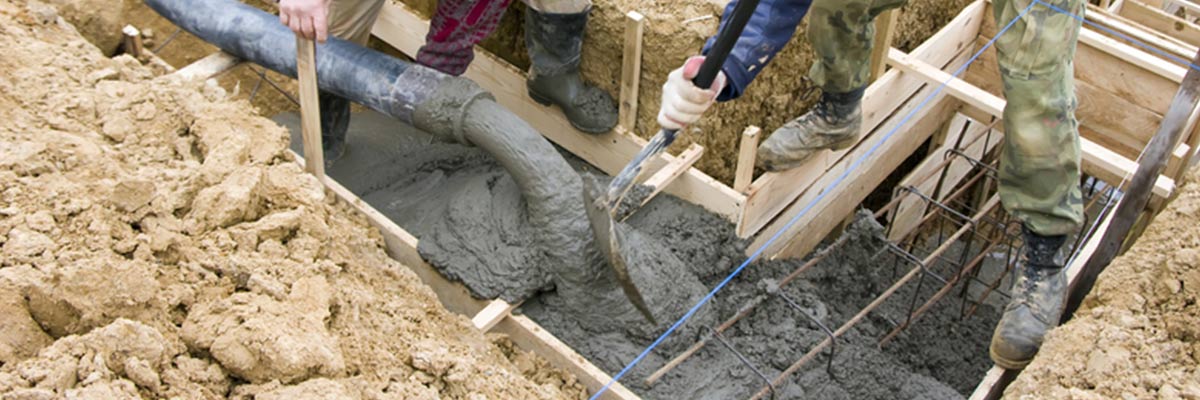
Flexible mixture that can be used in both domestic and commercial industries, but mainly for non-structural uses.
What is it used for?
- Strip footings
- Garden walls
- Trench fill and pad foundations
- Drainage works
- Oversite below suspended slabs
- Binding house floors
Strength
10 newtons after 28 days
C15 (GEN 2 / 15_1) Concrete
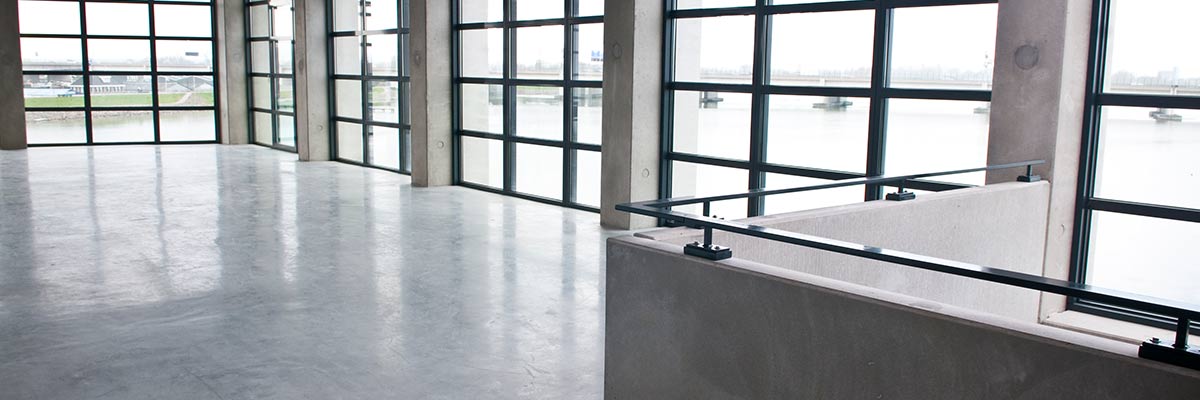
Used for domestic (DIY) and commercial projects.
What is it used for?
- Foundations
- Floors, especially on occasions when no permanent finish will be added e.g tiles or carpet
- House/garage floors that have no embedded metal
- Paving for steps and pathways
Strength
15 newtons after 28 days
C25 (ST 2 / 11_1) Concrete
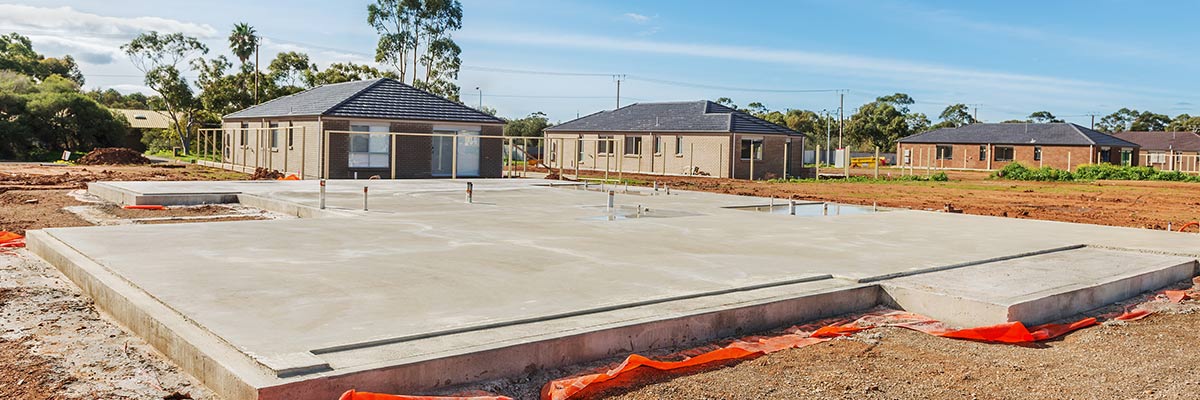
Useful for a range of domestic and commercial projects.
What is it used for?
- Footings for unstable/soft ground
- Foundations
- Groundwork
- Mass concrete fill, reinforced fill and trench fill
- Kerbing
- Patios
Strength
25 newtons after 28 days
C30 (ST 3 / PAV1 / 9_1) Concrete
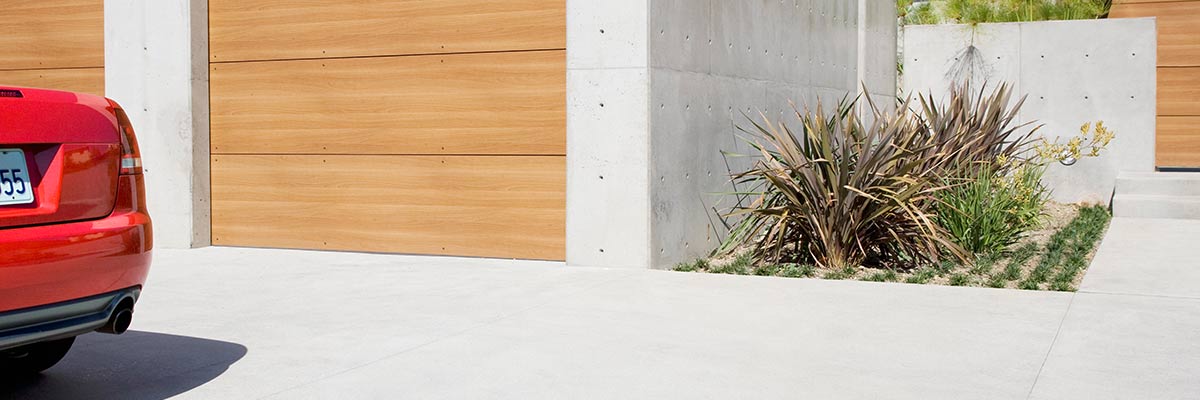
PAV 1 designated concrete are air-entrained concrete mixes. The air-entrainment process purposefully forms tiny air bubbles within the concrete, which boosts both its durability and its ability to withstand freeze-thaw cycles. The presence of bubbles also increases the workability of the concrete whilst in a plastic state.
What is it used for?
Suitable for use in many industries, including domestic, agricultural, and commercial.
- Domestic driveways & parking
- External parking
- Access routes for heavy vehicles
- Reinforced foundations
Strength
30 newtons after 28 days
C35 (PAV2 / ST 4 / 7_1) Concrete
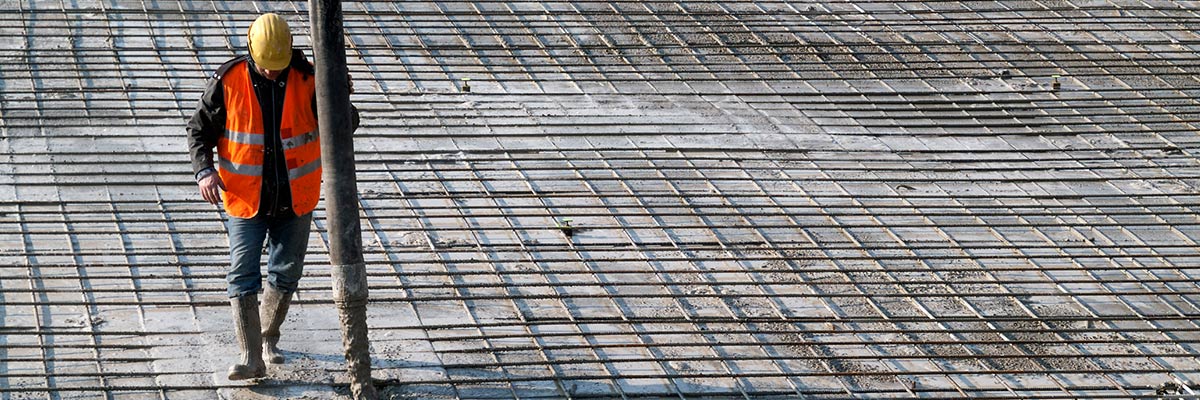
Strong, heavy-duty concrete that is suitable for numerous applications, including agricultural, domestic, commercial and industrial.
What is it used for?
Suitable for use in many industries, including domestic, agricultural, and commercial.
- Heavy-duty external paving and slabbing
- Reinforced bases for commercial and agricultural buildings
- Can withstand rubber-tyred vehicles, loading and scraping
- House/garage floors contained embedded metal
Strength
35 newtons after 28 days
C40 (ST 5 / 5_1) Concrete
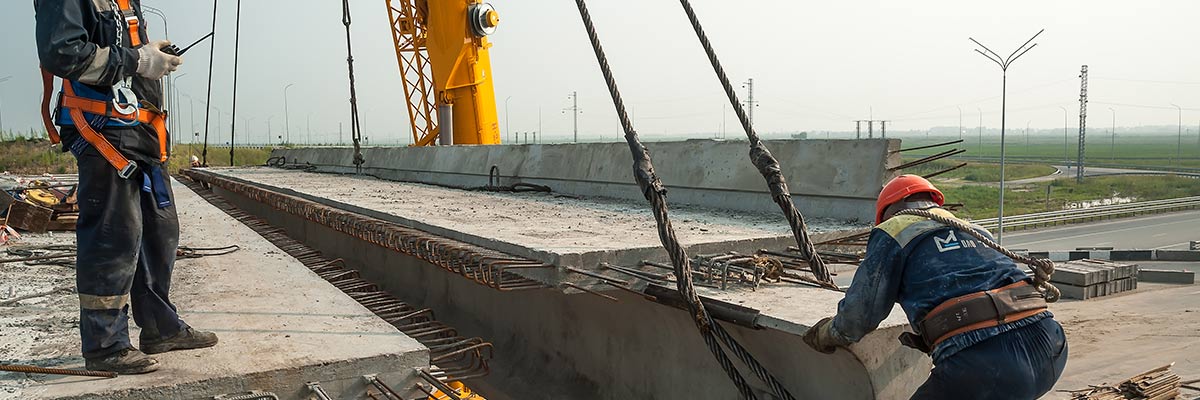
High-strength, high-performing concrete ideal for many industries, including industrial, agricultural and civil.
What is it used for?
- Ironworks
- Manholes, lamp-posts, road signs
- Structural beams and foundations
- Slurry and silage pits for farms
- Chemically-harsh environments
Strength
40 newtons after 28 days
Domestic Concrete Types & Applications
No matter what domestic construction project you’re undertaking, getting the right type of concrete is essential. Whether you’re building your new home or need some concrete to resurface your driveway, Easymix can help you decide what type of concrete you should be looking out for. Here’s a handy guide to the different types of concrete available and what they are used for.
Readymix Concrete
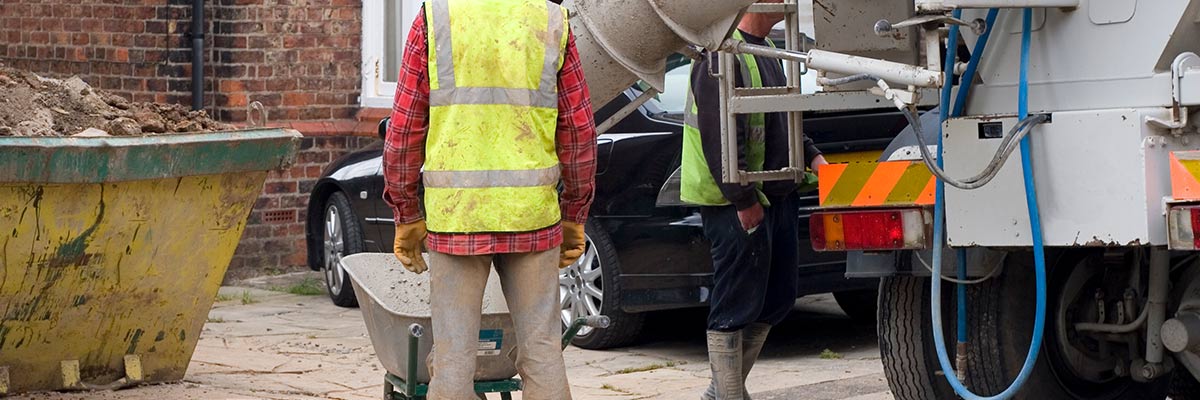
Readymix concrete is concrete that has been manufactured in a batch plant according to exact mix recipe, and then delivered to a work site via truck-mounted mixers.
What is it used for?
Readymix concrete is used in scenarios where getting the correct ratios of ingredients is vital and a very specific mix is required. It’s also useful when sites are too small or busy for concrete to be mixed there and then, for example, a driveway.
Volumetric Concrete

Volumetric concrete is produced on site in a mobile batching plant, that is, a volumetric concrete mixer. Raw materials are stored in separate compartments, meaning that you can adjust the mix design on site as and when you need to.
What is it used for?
Volumetric concrete is used when two separate mixes are required for different projects on the same site, as the concrete can be mixed on demand. It’s also useful when an exact mix hasn’t yet been nailed down.
Self-compacting Concrete
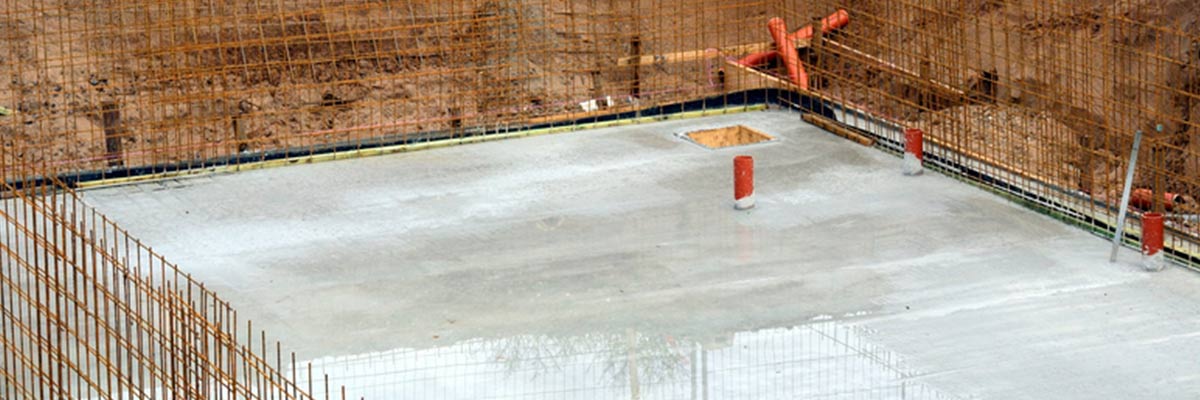
Given the addition of superplasticisers, self-compacting concrete has a high flow rate and can reach much higher strengths than basic mixes. As the name suggests, it can self-compact under its own weight making it much easier to place.
What is it used for?
Thanks to its great strength, self-compacting concrete is often used for foundations or underground structures.
Decorative Concrete

Decorative concrete provides an additional aesthetic dimension to regular concrete in the form of different patterns, colours and textures.
What is it used for?
Decorative concrete is used in a variety of different domestic projects, for example, new floors or swimming pools. It adds an element of dynamism to an otherwise unexciting material.
Rapid-setting Concrete
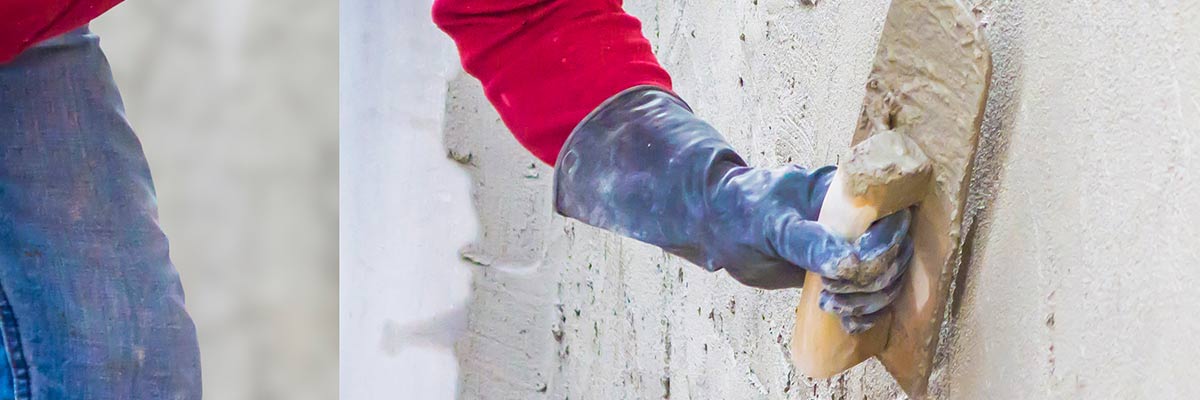
Rapid-setting concrete offers faster set times and has a higher resistance to lower temperatures.
What is it used for?
Thanks to the properties of this type of concrete, it is particularly useful for winter projects, and those where time is of the essence.
Roll-compacted Concrete
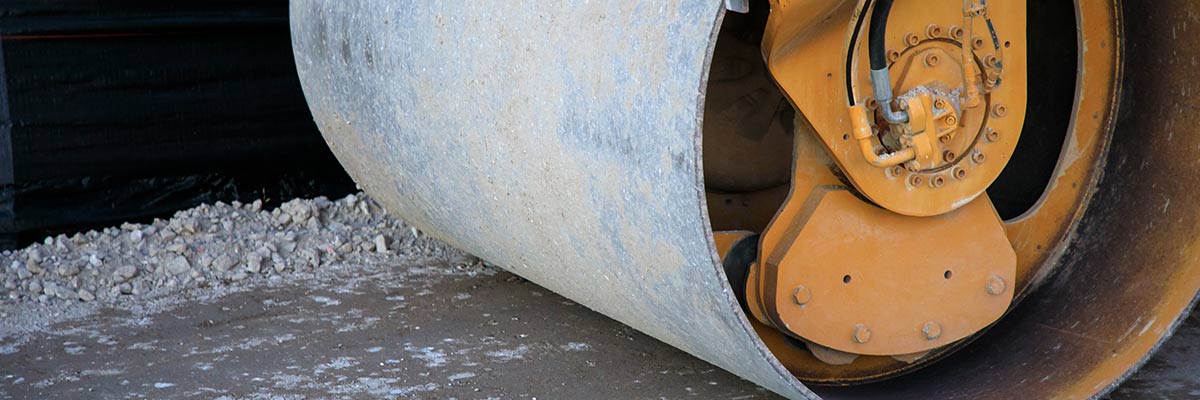
This type of concrete is compacted heavily by rollers, making it very dense, strong and easy to pour in vast quantities. It is also more cost-effective than other materials and uses less energy to produce than asphalt.
What is it used for?
Roller-compacted concrete is commonly used for road and pavement construction instead of asphalt.
Fibre-reinforced Concrete

Fibre-reinforced concrete is infused with spread fibres, offering increased durability and strength. This reduces the need for steel rebar reinforcement and makes it more resistant to cracking.
What is it used for?
Thanks to its durability and strength, fibre-reinforced concrete is perfect for light external builds.
Pervious Concrete
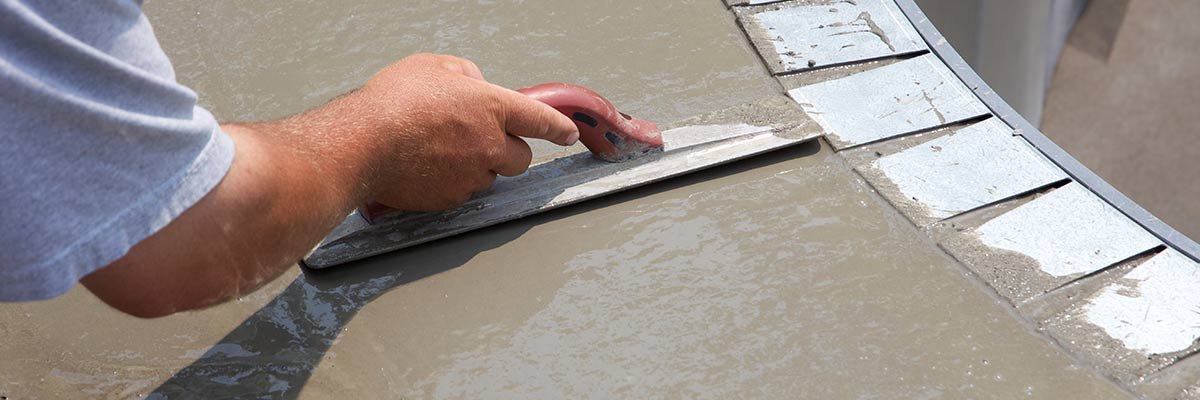
Pervious concrete is highly porous, allowing water to filter through easily. Because of this, it can help prevent flooding and water pooling.
What is it used for?
In domestic settings, pervious concrete is particularly good for swimming pool borders as it can easily resist water damage.
Foamed Concrete
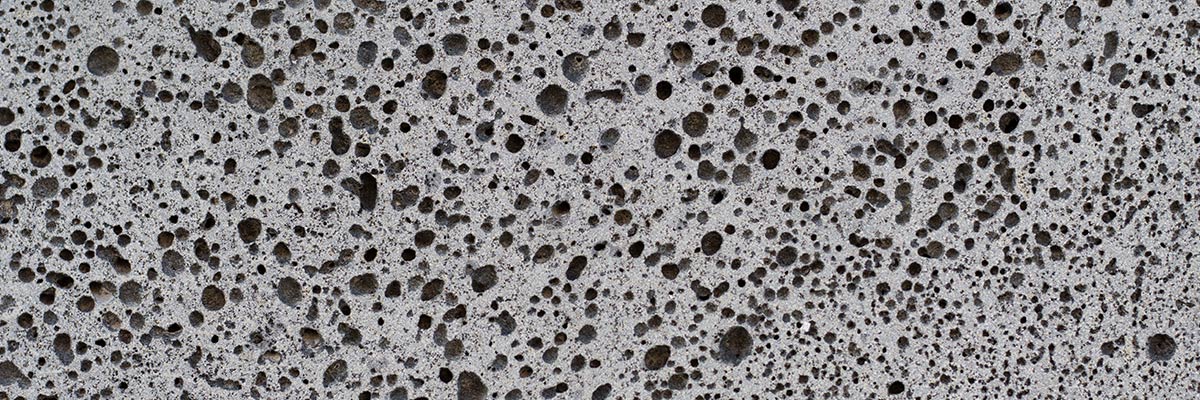
Lightweight, self-compacting and highly insulative, foamed concrete is extremely versatile.
What is it used for?
Thanks to its various benefits, foamed concrete is perfect for covering cables or pipes without crushing or damaging them.
As leading suppliers of concrete and floor screed across Hertfordshire, Bedfordshire, Northamptonshire, North London, Milton Keynes and surrounds, you can rely on EasyMix to provide domestic and commercial customers with fresh concrete mixed to your exact specifications. We offer rapid turnaround on all orders, and offer an only-pay-for-what-you-use service. Get in touch to find out more, and our friendly team will be happy to assist.





